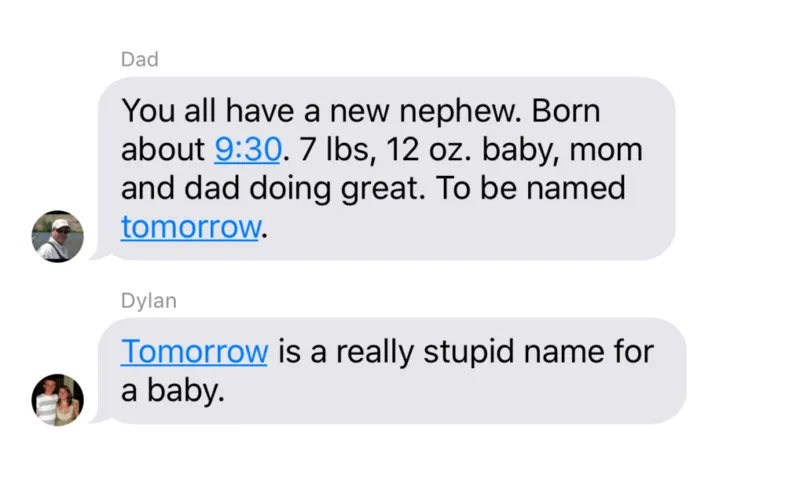I read these things online about young people trying to date in the modern smartphone era. To the new generations coming up, everything is an "app" - how you apply for a job, buy a car, find a home, find a spouse. And sadly, these "apps" don't seem to work very well, perhaps by design.
After all, the name of the game is "engagement" - and by that I don't mean the kind that comes with a ring! Rather, they want you to be on their app as often as possible and for as long as possible - and forever. With a dating app, the last thing they want is someone to find a mate within a few weeks, get into a relationship, get engaged, get married and live happily ever after. That user never comes back to the app ever again - and erases it from his phone.
How can the app make money if users are not perpetually unhappy? After all, a chronic user who never finds the "perfect mate" is prime fodder for advertisers. Since they are alone, they will spend all their money on comfort foods and stylish clothing and a new SUV, of course. Elon Musk wonders why the birth rate is down - while at the same time, owns Twitter. Social Media, it seems is the biggest cock-blocker out there.
There seems to be a pattern in these tales of woe. A person goes on Tinder to find a mate and "matches" with someone. They message each other for days and it seems to go well and they set up a date to meet in person. One of them texts something they think is cute or funny and the other takes offense and "ghosts" them - the date is off!
Endless texting seems to always end this way, particularly with people you barely know. Since you never met them in person, you have no context to understand their messages and misunderstandings result. With friends, well, you assume the best with them, and don't immediately assume their snarky comment was meant as an insult. Texting doesn't bring us together, but rather pushes us apart.
The problem with texting is there is no nuance in communication. Short messages can be cute, but also misinterpreted. What you think is a funny joke might come across to the recipient as an insult or sarcasm. If you don't append your message with the right emoticon, it can go off the rails very quickly. Use the wrong emoticon and you are dead meat.
Traditional literature - long form writing - allows for nuance. You can write paragraph after paragraph (and I do!) trying to explain the details of your thoughts. Today, however, long-form writing is viewed as boring and not surprisingly, isn't read at all, or at best, skimmed. "TL;DR" is a common abbreviation for "Too Long, Didn't Read" - people want not just the Reader's Digest version, but a one-sentence summary.
Language, as I have noted before, is an exchange of symbols which have an agreed-upon meaning. So-called "AI" language models illustrate how this actually works. What we think of as consciousness is really just a narrative in our minds - a narrative of words which are symbols. Emoticons are just the latest language to emerge - a new form of slang. For those perpetually online, each one has a specific meaning. Woe be to the grandma who uses the aubergine emoticon to describe her cooking! Some emoticons have taken on x-rated meanings.
So communicating via text presents a plethora of new hazards. Unlike traditional writing, texting has an unwritten code of use that only chronic texters may learn through trial-and-error. And the rules are constantly evolving and changing over time.
Part of the problem is lack of literacy. At the same time we devolved from voice communications (i.e. phone calls) to text communications, actual reading and writing skills have decreased dramatically. College professors complain that incoming freshmen are functionally illiterate and can't handle the vast amount of reading required for college-level course. Writing skills are even worse, which is why many undergraduates are resorting to AI-generated term papers or paying overseas paper mills to generate their work for them. We live in a texting culture but cannot read or write. Irony alert!
Oddly enough, the only remaining "long form" communications are audio/visual. People sit enthralled, watching a guy with big headphones and a huge microphone, holding forth on his opinions of the day. And often, these opinions are utter bullshit - the Earth is flat, FEMA causes hurricanes, vaccines are fake - whatever seems to be popular at the moment. Myself, I cannot sit still for such nonsense, only because the slow pace of information in these "podcasts" (named for an Apple device that went out of production years ago!) is infuriating, and unlike real print media, you cannot re-read or think about the ideas being put forth as you go. Video is the prime media for indoctrination and propaganda. That and short text messages. Long-form is the death to misinformation.
I don't know what got me started on this thread, but it seems that more people are pushed apart by texting than are put together. One the one hand, I understand part of it - phone calls can be a noisy interruption and require your full attention. A text, as brief as it is, can be responded to at your leisure.
But beware! The chronic texters take offense if you don't respond to a text within minutes. Worse yet, you are viewed poorly if you respond too quickly. There is nuance in texting, but of all the wrong sort.



